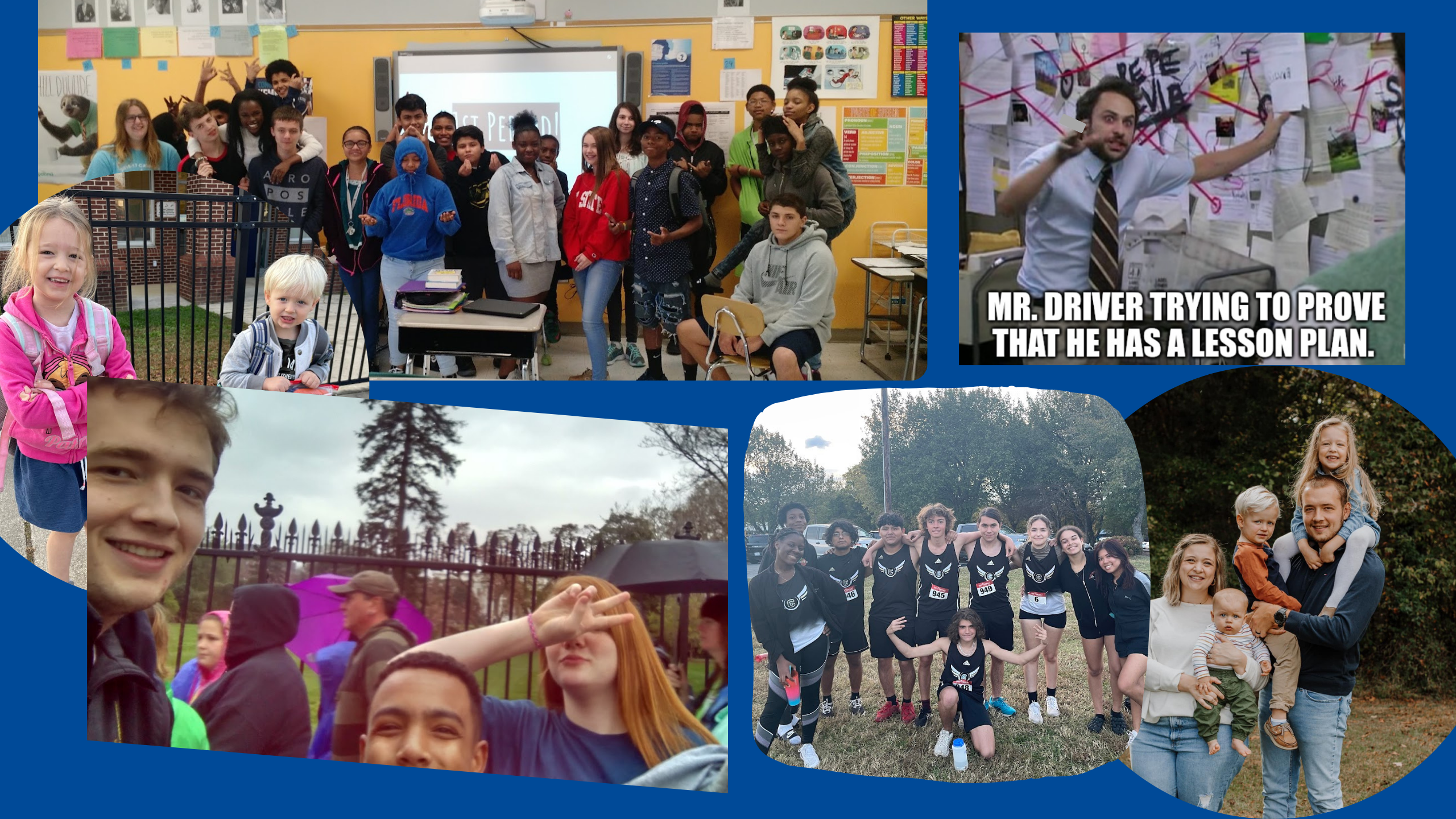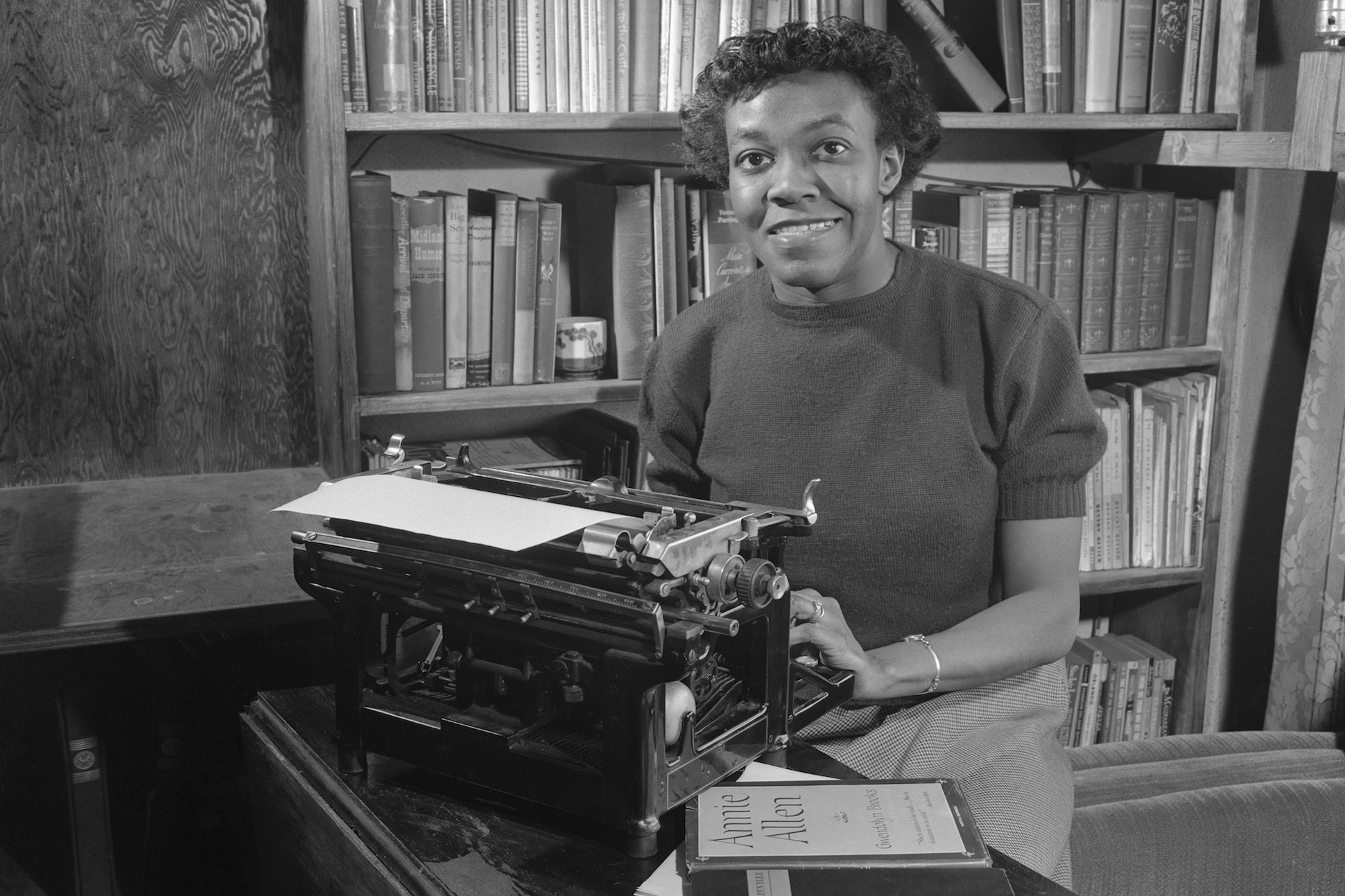For the English teacher, there may be no more difficult task than wooing struggling readers into a love of poetry. The measured language, frequent “double meanings,” and invisible rule-following or rule-breaking all combine to trouble even the most engaged students, often leading to a level of repulsion and distrust engendered by few other art forms. In other words, lots of kids hate poetry and think it’s dumb, and it’s our job to convince them that that’s maybe not true. In the worthy and noble pursuit of changing that perception, I humbly offer a list of my favorite poems for use in the English classroom. I also attempt to offer as much relevant lesson-planning information as I can to help you decide which works are right for your students.
First, here are the five poems students are not allowed to leave my room without reading:
#1 “The Rose that Grew from Concrete” by Tupac Shakur
Synopsis: The writer compares his childhood to a rose growing from concrete in this brief yet powerful poem.
Reading Level: 6th grade+
Themes: Growing Up, Great Expectations, Stereotypes
Literary Devices: Metaphor, Memoir
Student Interest Level: 10/10
Notes: Author is one of the most influential artists in American music history, and his life story is captivating in its own right. He has a lot of songs that are great for comparison work or just reading/analyzing on their own. The author’s biography obviously encourages interest (especially among males) and offers the opportunity to discuss the place of a writer in his work.
#2 “Mosquitoes” by Aimee Nezuhkamatetil
Synopsis: A young woman observes the changes in the relationship between herself and her star-gazing father in this call-back to Robert Hayden’s “Those Winter Sundays.”
Reading Level: 7th grade+
Themes: Family, Loss, Growing Up
Literary Devices: Time lapse
Student Interest Level: 9/10
Notes: Great poem to compare to the landmark poem it is modeled after.
#3 “The Gift” by Li Young Lee
Synopsis: A son revisits a small childhood moment with his father as he removes a splinter from his wife’s hand, attempting to conjure the same gentle nature with which his father once treated him.
Reading Level: 9th grade+ (worth a shot in middle school, but certainly not a straightforward read even for high school)
Themes: Memory, Role Model, Familial and Romantic Love
Literary Devices: Metaphor, Interaction with Reader
Student Interest Level: 8/10
Notes: Fascinating writer biography
#4 “Sonnet 18” by William Shakespeare
Synopsis: The narrator addresses the object of his affection, primarily comparing her to the best qualities of summer.
Reading Level: 9th grade+; Again, worth a shot in middle school, but the language is intimidating to say the least
Themes: Love, Selfishness, Eternity
Literary Devices: Metaphor, Analogy, Simile, Rhyme Scheme, Meter, Sonnet form (obviously)
Student Interest Level: 7/10
Notes: They need some Shakespeare at some point, and this seems to be the most accessible of his sonnets.
#5 “Those Winter Sundays” by Robert Hayden
Synopsis: A son laments his lack of perspective as a young man growing up in the house of his cold yet providing father.
Reading Level: 7th grade+
Themes: Fatherhood, Home, Regret, Growing Up
11 Obvious Famous Poems that Every Kid Should Read…
“We Real Cool” by Gwendolyn Brooks
“Dreams” by Langston Hughes
“Still I Rise” by Maya Angelou
“The Road Not Taken” by Robert Frost
“I’m Nobody! Who Are You?” by Emily Dickinson
“Trees” by Joyce Kilmer
“Dust of Snow” by Robert Frost
“My Papa’s Waltz” by Theodore Roethke
“Do not go gentle into that good night” by Dylan Thomas
“Stopping by Woods on a Snowy Evening” by Robert Frost
“Harlem” by Langston Hughes
The Other 56 poems (broken down by general theme):
Family
“Nikki-Rosa” by Nikki Giovanni
“Mother to Son” by Langston Hughes
“Daddy” by Sylvia Plath
“Before” by Ada Limon
“No More Cake Here” by Natalie Diaz
“My Father Is an Oyster” by Clint Smith*
Race
“I, Too” by Langston Hughes
“Children’s Rhymes” by Langston Hughes
“Selma, 1965” by Gloria Larry House
“Americus, Georgia in Sixty Three” by Lulu Westbrook Griffin
“Microwave Popcorn” by Harmony Holiday
“American Sonnet for My Past and Future Assassin [“Probably twilight makes blackness dangerous”]” by Terrance Hayes*
“Afro-Latina” by Elizabeth Acevedo*
America
“Ghazal: America the Beautiful” by Alicia Ostriker
“In Colorado My Father Scoured and Stacked Dishes” by Eduardo Corral
“The New Colossus” by Emma Lazarus
“For Which It Stands” by Gregory Pardlo
“América” by Richard Blanco
“A Supermarket in California” by Allen Ginsberg*
Love
“[love is more thicker than forget]” by E.E. Cummings
“Recitative” by A.E. Stallings
“The Expatriates” by Anne Sexton
Life
“The Snow Man” by Wallace Stevens
“Chicago” by Carl Sandburg
“Death” by William Butler Yeats
“The Weary Blues” by Langston Hughes
“Dance Russe” by William Carlos Williams
“Ode to a Large Tuna in the Market” by Pablo Neruda
“And The Moon And The Stars And The World” by Charles Bukowski
“After the Winter” by Claude McKay
“Bright star, would I were stedfast as thou art” by John Keats
“The Bean Eaters” by Gwendolyn Brooks
“Dido” by Frank O’Hara
“Black Zodiac” by Charles Wright*
Death
“Lady Lazarus” by Sylvia Plath
Growing Up
“Belle Isle, 1949” by Phillip Levine
Experimental
(I dislike that word for describing poems, but it’s maybe useful here)
“They Come” by Cathy Park Hong
“Amid Mounting Evidence” by John Ashberry
“Gerontion” by T.S. Eliot
“Cantico del Sole” by Ezra Pound
“All at Once” by Ed Roberson
“I Live Up Here” by W.S. Merwin
“What was he saying and to whom” by Alan Michael Parker
*Audio reading from poet in link
∞
A Quick List of Poets You Might Consider Using in Your Classroom…
-Cathy Park Hong
-Gregory Pardlo
-Claude McKay
-Ada Limon
-Aimee Nezuhkamatetil
-Elizabeth Acevedo
-Clint Smith
-Charles Wright

